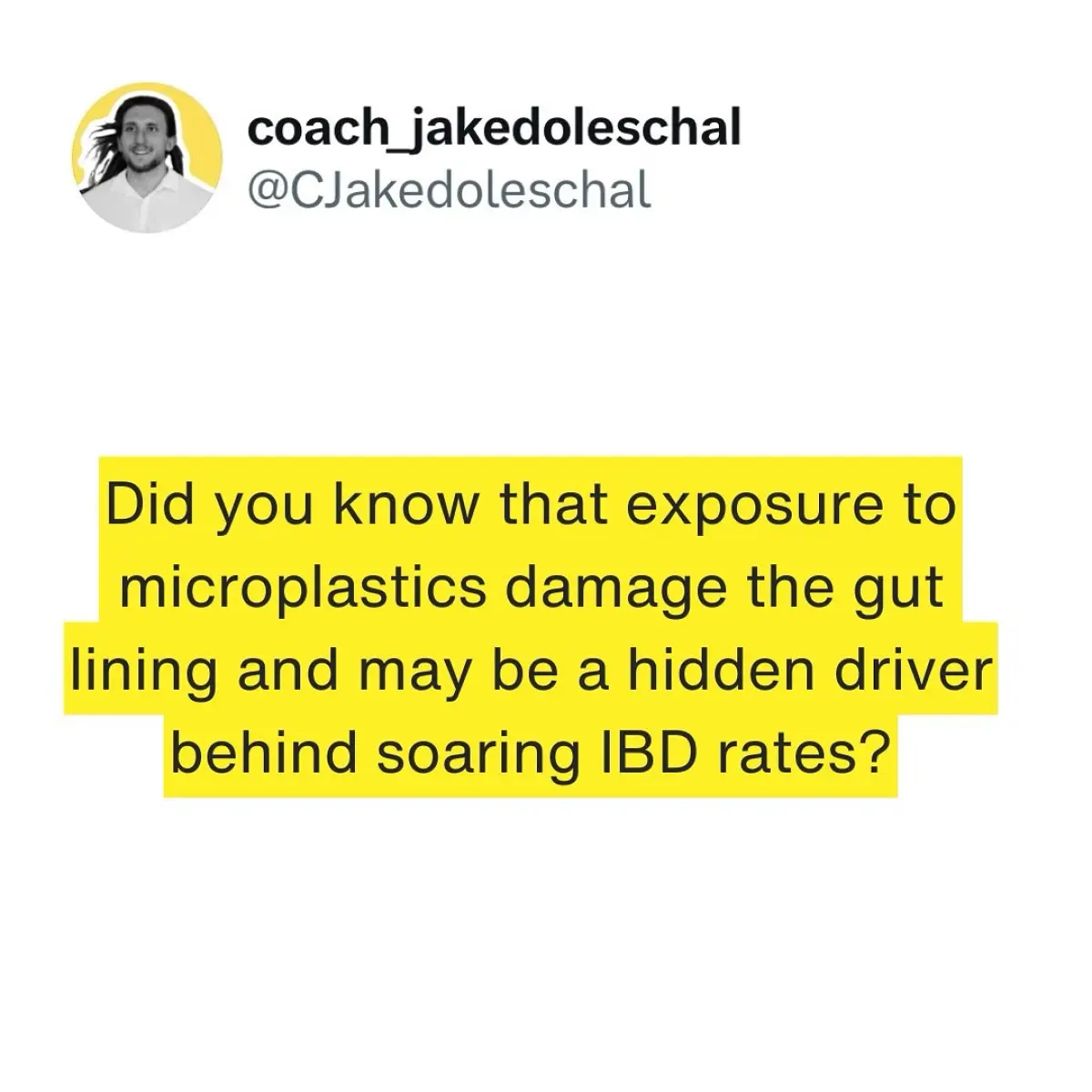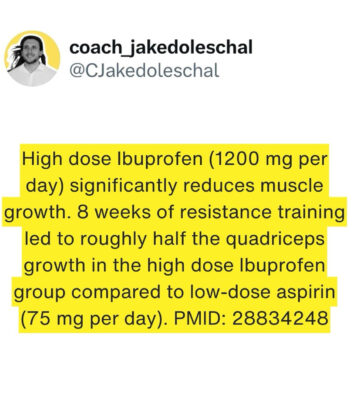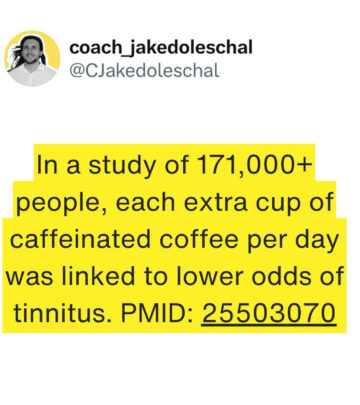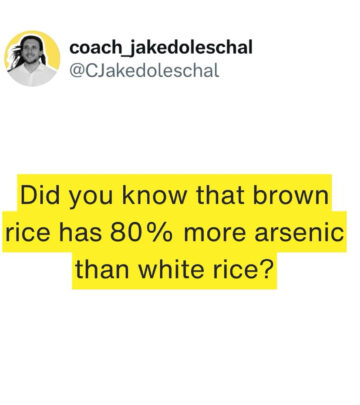Microplastics Impact Gut Health: Expert Insights On Limiting Exposure
Coach Jake Doleschal shares practical tips to reduce gut harm from microplastics, Go Heal

Image: Instagram
Recent research has brought to light a concerning connection between microplastics and gut health. Studies indicate that people with inflammatory bowel disease (IBD) may actually harbor higher concentrations of microplastics in their bodies. Even more alarming is evidence that these minute plastic particles can disrupt the tight junctions of the gut lining, leading to increased intestinal permeability – in other words, a compromised barrier that could result in a cascade of health issues, including cell death in the protective lining of the gut. Holistic coach Jake Doleschal, known for his evidence‐based advice on lifestyle and wellness, has taken these findings to heart, urging individuals to consider proactive steps to minimize exposure.
Understanding Microplastics Impact On Gut Health
Microplastics are an everyday reality. They are found in the food we eat, the water we drink, and even the air we breathe. Research suggests that these tiny particles are not inert; they interact with our bodies in ways that can lead to inflammation and other disruptions in normal gut function. In particular, studies show that microplastics can alter the composition of gut bacteria by reducing populations of beneficial (commensal) microbes. When these good bacteria decline, the balance of the gut ecosystem is disturbed—a recipe for what many researchers have described as a gut disaster.
Jake Doleschal, a holistic coach active on social media, has recently shared insights on these findings in an Instagram post. In his image posted via his account, he underscores the inevitability of microplastics in modern life but also highlights that there are ways to limit exposure. His message is clear: while it is nearly impossible to eliminate plastics completely, small but significant changes in your daily habits can help reduce the harm done to your gut health.
Research And Its Implications For Ibd
Emerging data indicate that individuals suffering from IBD may face an additional burden. These patients, already vulnerable due to chronic gut inflammation, could be at greater risk of cellular damage in their gut lining due to heightened microplastics accumulation. The disruption of the tight junctions – the microscopic “glue” that holds the gut barrier together – can lead to an increase in permeability. Such changes have been linked to the death of cells responsible for protecting our digestive tract, thereby heightening the risk of infections and worsening inflammation.
Furthermore, the decline in beneficial bacteria is a point of significant concern. A healthy gut relies on a balanced microbial community, and when this balance is disturbed, it can affect everything from digestion to immune function. Though microplastics are an almost unavoidable byproduct of our daily environment, understanding the mechanism by which they affect our health is the first step in devising strategies to mitigate their impact.
Practical Steps And Expert Advice
Coach Jake Doleschal advises that, while we may not be able to banish microplastics from our lives, individuals can adopt a number of proactive strategies. In his Instagram update, he emphasizes that reducing exposure begins with awareness: by being mindful of the sources of plastic in our environment, we can take deliberate steps to protect the integrity of our gut lining. Simple measures such as using alternative packaging, incorporating more whole foods into one’s diet, and even adopting a high-quality water filter to reduce contaminants have been suggested by experts in the field.
In a related note, Doleschal has previously shared online content about the role of inflammation in overall health. While not all inflammation is harmful—after all, it is part of the body’s natural healing process—excessive inflammation, particularly when it results from environmental toxins such as microplastics, can become problematic. The key, according to the coach, is modulating one’s overall exposure to harmful substances while supporting the body’s natural defenses through diet and lifestyle choices.
A Broader Perspective On Daily Exposure
Microplastics are everywhere—from the synthetic fibers shed by clothing to tiny fragments in the air and water. Many people are unaware of just how pervasive these contaminants are. The holistic perspective advocated by Coach Doleschal centers on realistic, attainable adjustments. For instance, he advises a balanced approach: switch to alternatives where possible, be conscious of the products you use, and pay attention to measures that support overall health, such as optimizing gut flora through a nutrient-rich diet.
Recent discussions in health circles have highlighted similar concerns. While some studies focus on the detrimental effects of high-dose anti-inflammatory medications in muscle repair, others underscore the importance of natural means to combat inflammation. Even though these topics might seem disparate, they all connect to the central idea of taking proactive steps—whether by moderating inflammation or reducing toxic exposures—to improve one’s health outcomes.
Taking Action In A Plastic-filled World
The recommendations coming from experts like Jake Doleschal stress that while the elimination of plastics is unrealistic in today’s industrialized society, minimizing their impact is entirely within our control. It begins with small lifestyle adjustments: opt for refillable water bottles, check food packaging labels, and consider lifestyle changes that reduce overall exposure. Health is a long-term game, and while the research on microplastics is still evolving, the proactive steps advised by holistic practitioners provide a practical blueprint for navigating the challenges of modern living.
Though the science is complex and still unfolding, one thing is increasingly clear – safeguarding our gut health in a plastic-rich environment is critical. If you are among those at risk of gut issues or already managing conditions like IBD, it might be worth exploring the recommendations from experts in holistic health. Every small change can contribute to a better balance in your gut microbiota and overall well-being.
By staying informed and adopting mindful habits, individuals can work towards counteracting the negative impacts of microplastics. In a world where exposure to plastic is unavoidable, the emphasis must be on harm reduction and supporting the body’s natural resilience. As more research comes to light, holistic strategies like those recommended by Coach Doleschal will likely play an important role in guiding public health choices.
This ongoing dialogue between cutting-edge research and practical, everyday advice continues to empower individuals to take control of their health. While we might never completely escape the reach of microplastics, informed and conscious living can help maintain a healthy gut and overall quality of life.
Read full bio of Srijita De



















